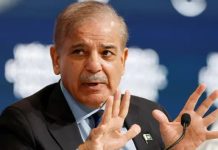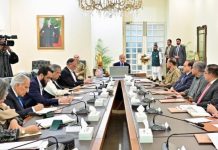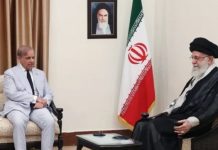Chairman of the ASEAN Islamabad Committee (ASI) and High Commissioner of Brunei Haji Kamal Bashah says this year’s theme, “ASEAN: Enhancing Connectivity and Resilience,” was particularly timely and significant as we try to navigate ourselves within the complexities of this modern world
Ansar M Bhatti
ISLAMABAD: Chairman of the ASEAN Islamabad Committee (ASI) and High Commissioner of Brunei Haji Kamal Bashah has said since its establishment on 8 August 1967, ASEAN has been a cornerstone of regional stability and growth.
With a combined population of over 690 million people and a combined GDP surpassing 3.6 trillion USD, ASEAN has emerged as one of the significant political and economic player in the global stage.
He expressed these views on the occasion of the 57th ASEAN Day celebrations, held at Islamabad Serena Hotel. This annual celebration stands as a testament of our collective achievements based on our shared vision for a united and prosperous Southeast Asia.
The High Commissioner further said, this year’s theme, “ASEAN: Enhancing Connectivity and Resilience,” was particularly timely and significant as we try to navigate ourselves within the complexities of this modern world.
‘Today, we have undoubtedly been facing numerous global challenges, including the aftermath of the pandemic, regional conflicts, economic uncertainties, and the urgent need of combating the climate change phenomena. In these challenging times, regional organization like ASEAN will continue to play a crucial role in fostering multilateral cooperation in the effort of effectively addressing these issues’.
ASEAN, or the Association of Southeast Asian Nations to be known, is a regional organization which currently comprising of the ten member states: Brunei Darussalam, Cambodia, Indonesia, Laos, Malaysia, Myanmar, the Philippines, Singapore, Thailand, and Vietnam. We have also recently been welcoming Timor-Leste to be our ASEAN member as they have now been conducting their intensified efforts in implementing the roadmap criteria towards their full membership, he added.
High Commissioner Kamal said, their commitment to dialogue, consultation, and cooperation based on the ASEAN Way principle, had been instrumental in maintaining peace, stability, and prosperity in the region. This was particularly evident during the COVID-19 pandemic when ASEAN’s coordinated efforts were vital in mitigating the virus’s socio-economic impacts.
Talking about the community vision he said, they took pride in progress towards the ASEAN Community Vision 2025, which encompassed political-security, economic, and socio-cultural dimensions. This vision underscored our cooperation in critical areas such as defense, counterterrorism, peacekeeping, economic integration, climate action, and disaster risk reduction.
Dilating upon relations between ASEAN and Pakistan the High Commissioner said, the partnership between ASEAN and Pakistan was rich in history and continues to flourish, grounded in mutual respect and shared goals. Since Pakistan was accorded sectoral dialogue status with ASEAN in 1993, our cooperation has expanded across numerous sectors, including trade, investment, science and technology, environment, tourism, and human resources development.
‘This relationship can be seen in many different forms over the years, including Pakistan’s accession to the Treaty of Amity and Cooperation in Southeast Asia (TAC) in 2004 and the establishment of the ASEAN-Pakistan Joint Sectoral Cooperation Committee (AP-JSCC) which has been instrumental in enhancing our collaboration’.
‘Adding to this, just earlier this year, we also welcomed the adoption of the Practical Cooperation Areas between ASEAN and Pakistan for the period of 2024 – 2028, which we are confident will be an instrumental overall framework to advance ASEAN-Pakistan cooperation over the next four years’.
Unfurling details of the trade and investment cooperation he said, the preliminary data indicated that the total two-way trade between ASEAN and Pakistan was growing admirably, rising from USD 10.22 billion in 2021 to USD 10.62 billion in 2022, amounting to about 3.84% increase for that period. These numbers are expected to continue of increasing, particularly as ASEAN is also projecting an economic growth of 4.6% in 2024 and 4.7% in 2025 respectively.
‘The ASEAN tourism industry is a vital economic sector for many nations in the region, is anticipated to continue for its recovery in 2024 as international tourism flows normalize towards pre-pandemic levels across Southeast Asia. This positive trend has been reflected in the number of Pakistani tourists visiting ASEAN countries, which had surged to approximately 131,000 in 2022, marking a more than 50% increase from the 2021 figure of around 5,100’.
‘As we celebrate ASEAN’s 57th anniversary, allow us this opportunity to reaffirm our dedication toward peace, stability, and prosperity in the region. I also wish to thank my fellow ASEAN Heads of Missions, ACI Committee members, Serena Hotel, participants, and all those who have contributed to making this event into a reality, he concluded.

















